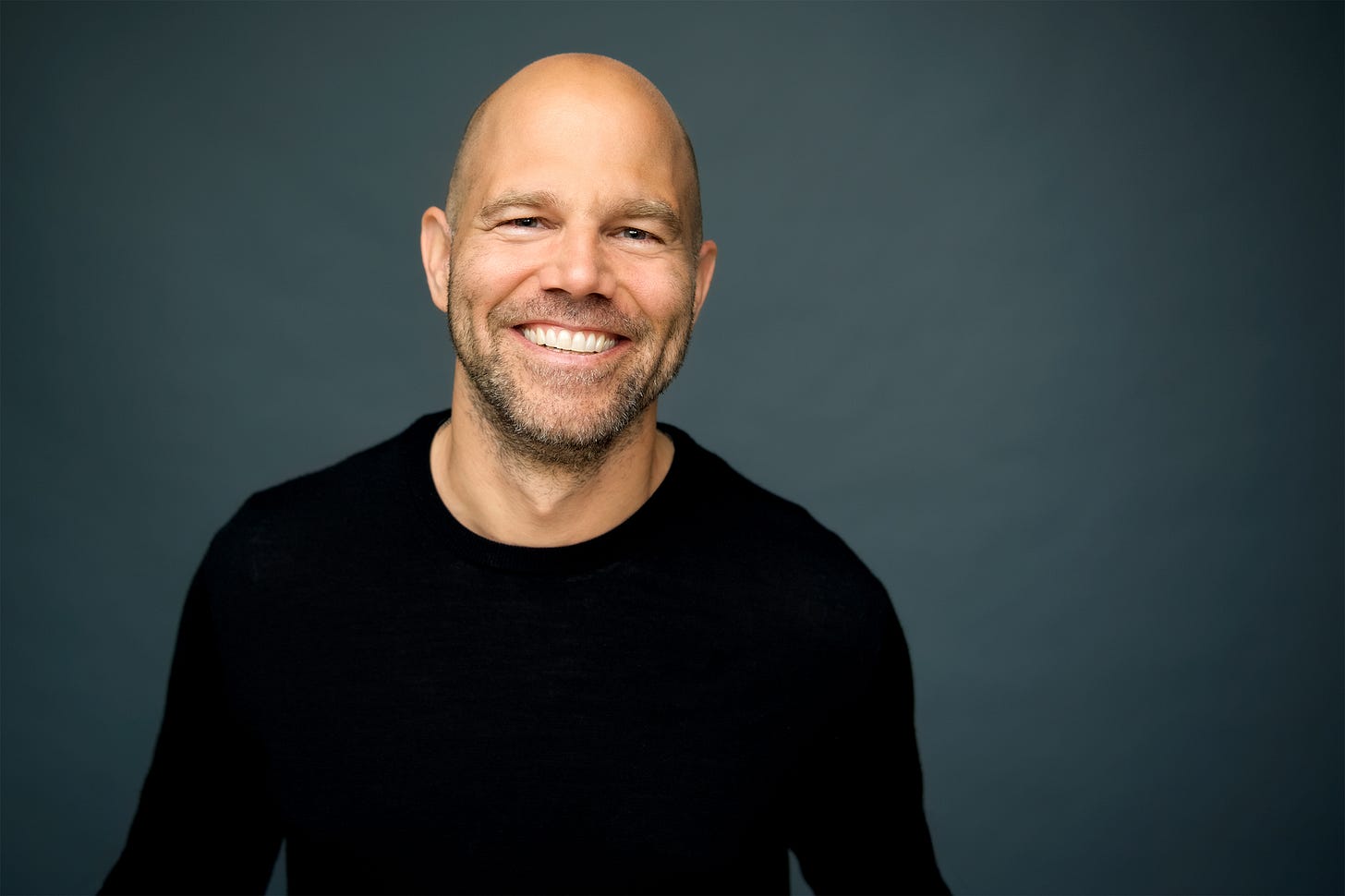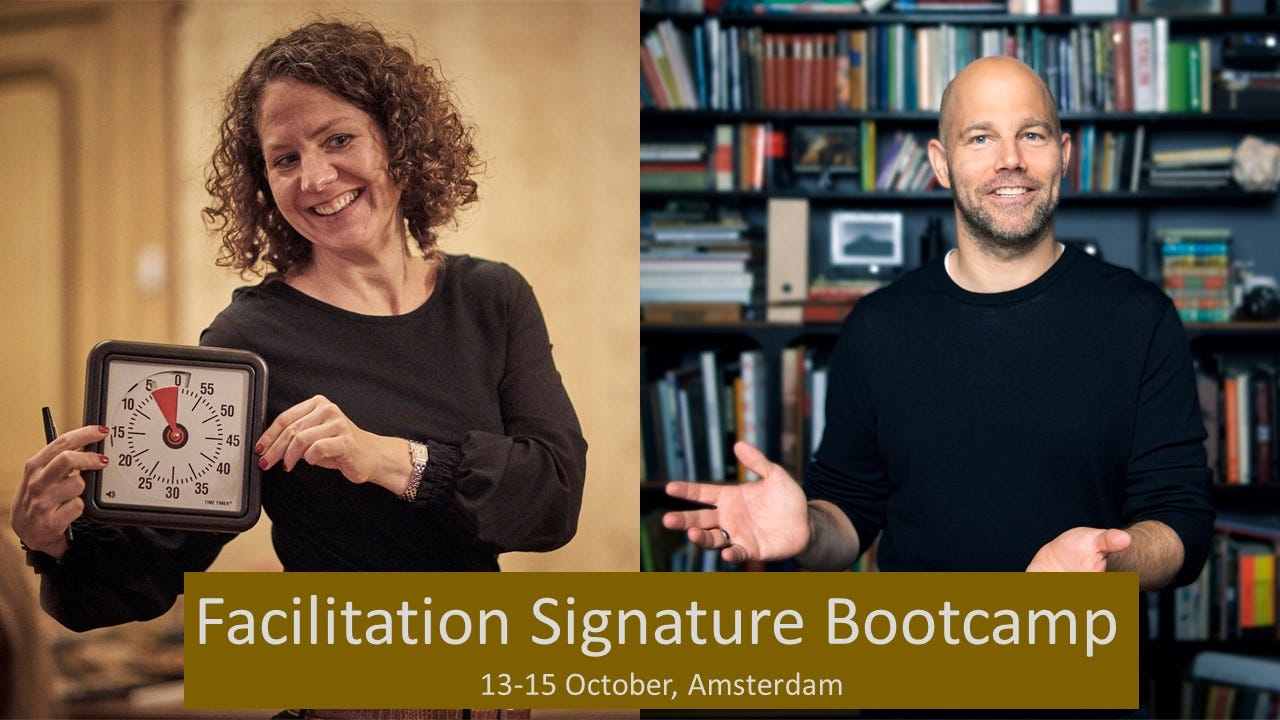5 things stand-out facilitators have in common
👉🏻 This is a guest post by Thomas Lahnthaler, a very talented fellow professional facilitator based in Oslo (Norway).
Thomas's experience spans from indigenous communities through war zones to board rooms. As a disruptive facilitator, advisor, and trusted mentor to global companies, leaders, and teams, Thomas works at the intersection of human dynamics, innovation, and disruptive change. He is known for his passion for challenging conventions, thinking differently, and learning from his two kids.
"What makes a great facilitator?"
I am often asked this question, and the answer is not easy. Looking back at my career, I was privileged to observe, experience, learn from, and coach excellent facilitators. Reflecting on what they all have in common, five things stand out:
1. They aim to be different.
Many facilitators aim for feedback that confirms that participants had a fantastic time and this was the best experience they had ever had. Stand-out facilitators look for something else. They are less preoccupied with whether the experience was incredible; they aim for feedback that it was different. The reason is relatively simple.
What's different stays in our memory. Think of the last vacation you had and think of the memories that stand out. I bet that the things that are off, strange, funny, or imperfect are the ones that come to mind. The same goes for workshops.
It's not about being perfect; it's about creating an experience different from any other. And it all starts with the mindset and ambitions of the facilitator.
2. They dare to push boundaries.
There are thousands of tools, processes, and methods out there, and one could say that there is more than enough to run great workshops for the rest of our professional days. For many facilitators, that's enough. For great facilitators, this will never be enough.
They aim to constantly explore new ways of practicing this excellent craft, whether digitally, hybrid, or in-person. The difference between good and great facilitators is the hunger to play with the known to create the unknown continuously.
This also requires a specific driver, leading me to point three.
3. They are relentless learners.
Great facilitators look upon facilitation as a journey, not a destination. They have embraced a mindset built on the continuous ambition to learn, evolve, and grow in their roles and as people. They look for opportunities to take their practice to the next level wherever they can; if they don't find any, they create them.
Every experience they make is as much a learning journey for them as it is for the participants who go through it. They are tirelessly working on new ideas and new ways of doing things and do not shy away from failing with their experiments and taking in harsh feedback. Moreover, they turn it into motivators for the next time.
4. They are not afraid to look in the mirror.
To take in feedback in a way that doesn't become personal, great facilitators know themselves very well. They have adopted a habit of continuous honest self-reflection. This includes looking beyond the apparent takeaways and going to places we do not like to go too often, the dark corners of ourselves, the dungeon.
These are the parts of us where we find secret desires, fears, taboos, triggers, and our mental models. All of which are equally important than our positive attributes. However, they are often not as easy to digest. They contain some hard truths that we'd rather not face.
Great facilitators not only go there, but they also keep visiting because they know that to be able to show up in front of people like yourself, you need to know yourself.
5. They have an unmistakable signature.
What all great facilitators have in common is that they have a clear and recognisable signature. Often mistaken for style, a signature is much more than that. Style is just one part, while signature is how we show up, use tools, conduct processes, and interact with people. It is the philosophy and purpose for why we are facilitators and what we want to achieve with our work.
When you watch great facilitators work, traces of their DNA are in everything they do. Despite working purely in the group's interest, they have a way of facilitating that leverages their uniqueness, that each of us has been blessed by nature.
Facilitation is a form of leadership, and everybody, to some extent, is a facilitator. While we all can leverage our unique skills and abilities, few realise the hidden potential in themselves, and even fewer stand out.
We all can; it's about daring to explore who we are as facilitators.
Ready to take the next step to becoming a great facilitator?
Get 20% discount to my upcoming 3-days facilitation signature bootcamp on October 13th - 15th in Amsterdam together with Myriam Hadnes: “Craft your personal facilitation brand - Find your personal style, craft your pitch and build a solid brand to make a difference.”
Discount code: facilistation
Click here for more info.






One thing that I look for when selecting trainers is they love the voice of the participants more than their voice. It is a gut feel yet, experienced trainers can sense it almost immediately. Nice post!
These are some of the precise qualities I look for when I assess or coach facilitators. Rare and precious people, indeed.